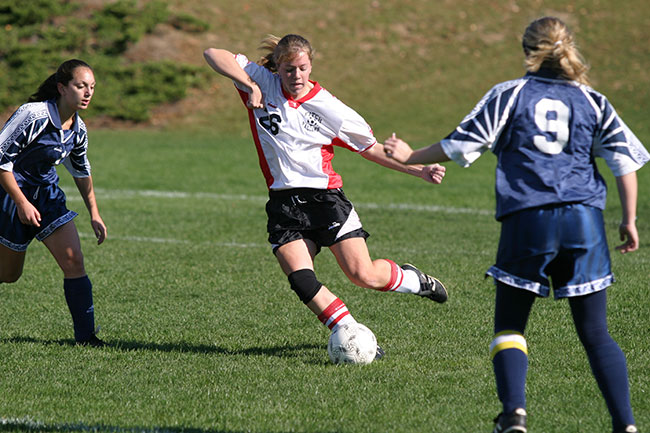
Physical activity, including participation in sports, has been linked to better health, the development of social skills, and academic achievement. Research shows that playing sports at a young age fosters a lifestyle that values physical fitness. Yet participation rates in youth sports are declining, and an estimated 70% of young participants drop out of sports before reaching high school.
The Department of Recreation, Sport and Tourism and the Office of Recreation and Park Resources decided it was time to reconsider the existing structure of youth sport programs, examine alternative models, acknowledge successful strategies, and begin redesigning youth sports in this country. In cooperation with the 2014 Olympic and Paralympic Assembly, the University of Illinois hosted a two-day Illinois Youth Sport Summit of leaders from across the state who are responsible for the design and delivery of youth sport programs. The summit focused on rethinking what sport could look like, and how all children could have better sport experiences.
Speakers came from higher education, sport institutes, park districts, sport consultants, and nonprofit sport organizations. They discussed everything from developing collaboration and resourcing challenges to innovative programming strategies and all-inclusive sport opportunities. Dr. Laurence Chalip, head of RST and Brightbill-Sapora Professor, Dr. Christine Green, and Dr. Jon Welty Peachey represented the University of Illinois, along with Jarrod Scheunemann, Community Services and Education Coordinator for the Office of Recreation and Park Resources, and RST doctoral student Raquel Hutchinson
Dr. Chalip says summit participants were eager to have the momentum of the meeting carried forward through concrete actions. “We are proceeding, therefore, with outcomes from the summit to form working groups, develop a white paper, and possibly create some workshops,” he said. He added that the Department of Recreation, Sport and Tourism will continue its outstanding research, education, and outreach, but that some of the work will become more intense and focused. “We will be involved in research and development efforts with industry, particularly the sport industry, even more than before, which means more work through our Office of Recreation and Park Resources,” he said. While RST will play a pivotal role in moving the work of the Illinois Youth Sport Summit forward, he said the goal is to make the effort self-sustaining to ensure long-term and ongoing impact.